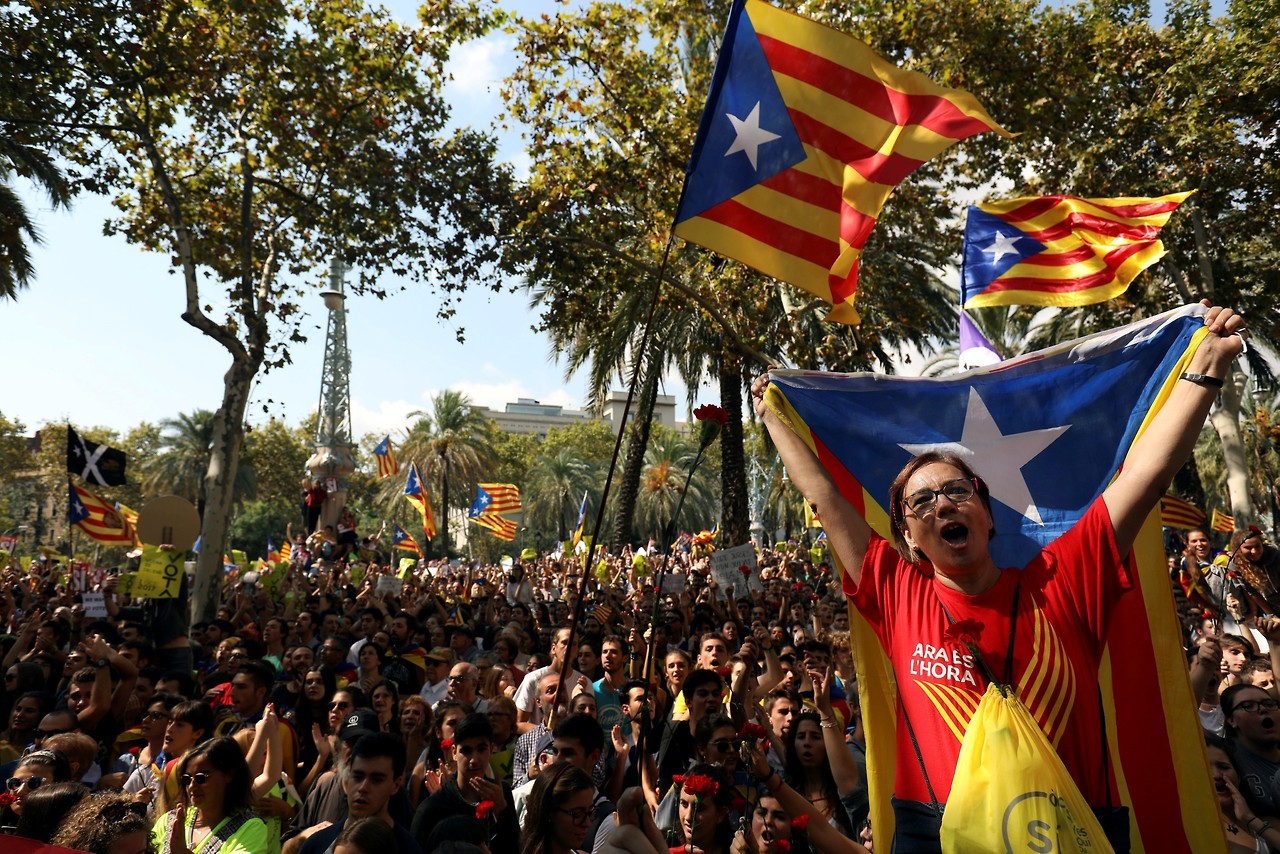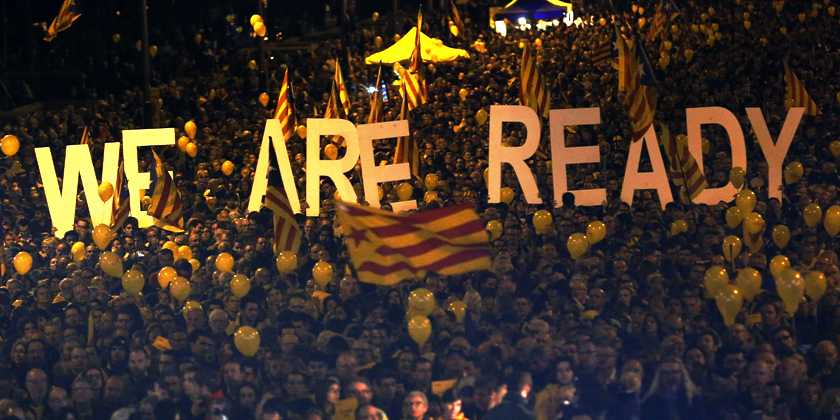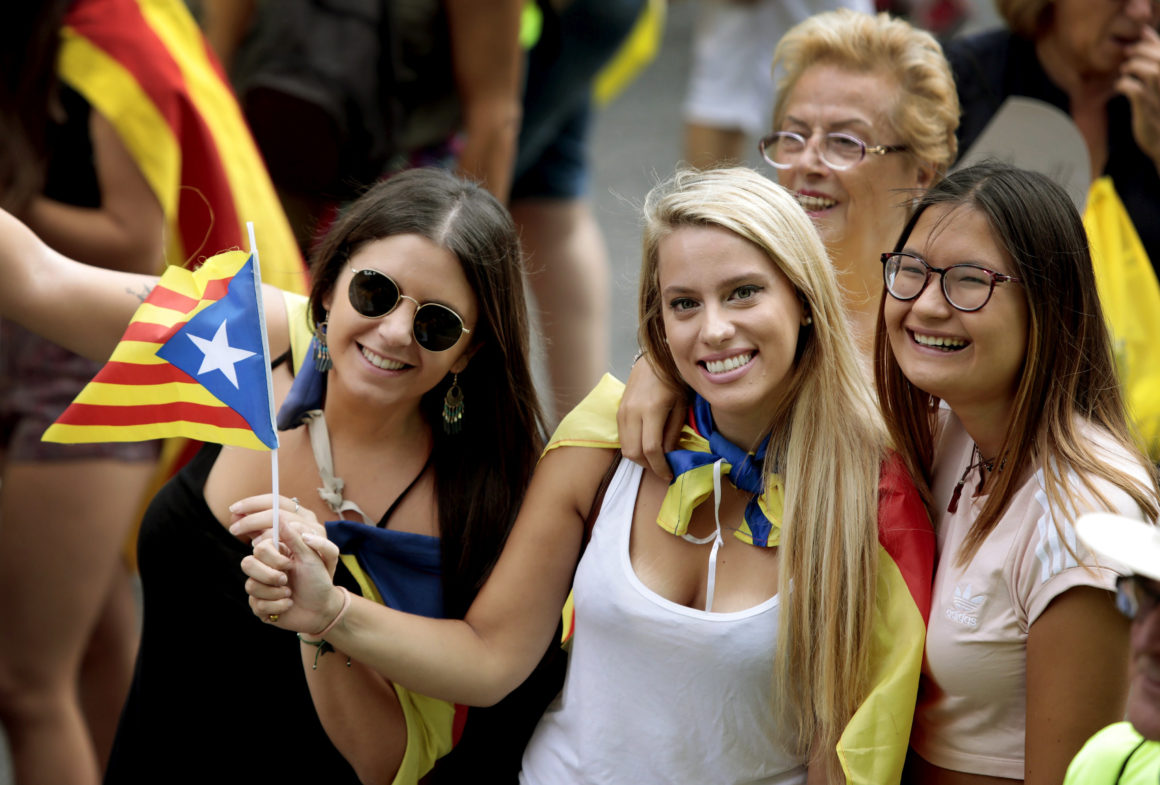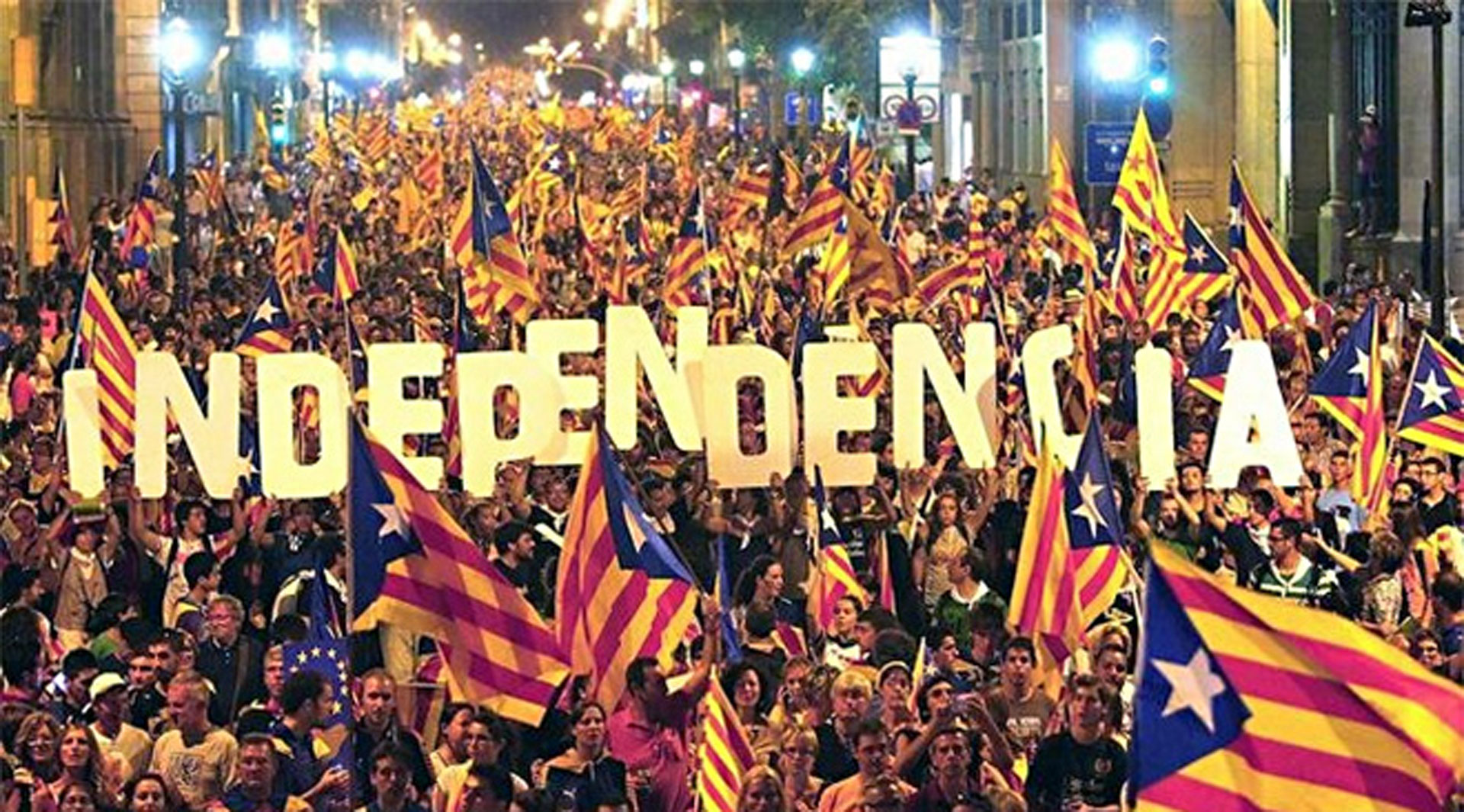
In 1939, Catalonia's autonomy was revoked during the totalitarian dictatorship of Francisco Franco, and the region's partial independence wasn't restored until Spain regained its democracy in 1975. Since then, the Catalans have enjoyed considerable – and growing – autonomy through the "Generalitat", a joint parliamentary and executive body whose seat is Barcelona.
The 2008 financial crisis, however, signalled a new chapter in Spain's separatist tensions. The considerable taxation measures that Madrid imposed on the Catalan economy, coupled with a series of 2010 rulings by the country's constitutional court that limited Catalonia's autonomy, sparked a fresh nationalist fervor.
A referendum for Catalan independence was later held – the infamous 2014 vote, in which an overwhelming 81 percent of voters said yesto independence, but the Generalitat, under pressure from Madrid, failed to take steps toward its realization. Now, Catalonia's President Carles Puidgemort has declared that the regional government will proceed with another controversial independence referendum on Oct. 1, despite 48 percent of the Catalan public reportedly opposing their region's separation from Spain.
Nonetheless, nerves are mounting on all sides because many suspect that this could be the year the Catalans make good on their promise to secede. In a televised statement, Spain's Deputy Prime Minister Soraya Saenz de Santamaria said, "We need to prepare for a strategy of tension implemented by the regional government and pro-independence parties...they are looking to provoke and they are looking for the state to react."
If Santamaria's comment sounded dismissive, Madrid's actual reaction was harsher. The government not only declared any attempt to institute Catalan independence unconstitutional. It also cracked down on more than 400 representatives of Catalonian advocacy groups to discourage any further attempts to politically promote the issue.
According to Cinta Arassa, a representative for the Catalonian PEN centre, "The use of judicial measures to silence our democratic debate is a direct attack on our right to free expression." Indeed, Madrid's attempt to stifle debate on the issue appears to have backfired – if the pro-secessionist, million-men march of Sept. 11 was any indication.
Even so, Madrid has thus far chosen to stay the present course, going as far as to prosecute – and in some cases shut down – any printing or publishing business that produce or distribute pro-secessionist material. The government's censorship efforts even managed to take down the Catalan referendum website, which was later defended and re-uploaded on a WikiLeaks mirror site run by Julian Assange.
On Sept. 18, Madrid escalated matters further by threatening that any Catalonian finances would be seized, and that its regional autonomy would be entirely abolished, if the Generalitat went ahead with the referendum. Then, two days later, Spanish police forces raided Catalonian government buildings in an attempt to apprehend regional officials.
Predictably, the government's overly aggressive act stoked the flames even higher. In the words of Puidgemort: “[The Spanish government] has crossed the red line that separated it from the repressive governments... and has de facto applied the state of emergency. They have violated fundamental rights and the Charter of Human Rights. They have made an illegitimate suspension and intervention of the Generalitat by a government does not respect the basic principles of democracy.”
Immediate counter-protests sprang up across the region, with thousands gathering in Barcelona to block the Gran Via, one of the city's big thoroughfares. Spanish police forces arrived immediately, along with helicopter support, in an attempt to disperse the protestors who chanted "Occupation Forces Out!"
Joan Tarda, a Catalonian MP, addressed the crowd early on. “They’re trying to derail us," Tarda said. "Our strength lies in being resolute, but in a civilised and peaceful manner.”
Despite the tensions, the protest got resolved peacefully. In an open letter published in the Guardian, Puidgemort addressed the European Union, asking for Spain to be held accountable for its overt abuse of power.
"Catalan citizens are peaceful, European and open-minded, we want to contribute to better international and European governance," he wrote. "This is not about independence, it is about fundamental civil rights, and the universal right of self-determination... We have only arrived at this crisis due to aggressive tactics employed by [Mariano] Rajoy [PM of Spain] over the past seven years."
Following the article's publication, more than 700 elected Catalonian representatives announced that they would be organizing and participating in the Oct 1 referendum, which they emphasized would be carried out peacefully. In a more recent rally, Jordi Cuixart, leader of the pro-secessionist party Omnium Cultural, produced over a million flyers to be handed out to Catalan voters. All of this took place even as the Spanish government tried to wrest control away from the Mossos d' Esquadra, the Catalan police force, in a final bid to stop the referendum from taking place.
The Mossos d' Esquarda adressed the public in response, tweeting: “We’ll continue working as we have until now. We will exercise our powers to guarantee security and public order and be at the service of citizens.”
Joaqim Form, Catalonian Interior Minister, backed the statement, asserting: "The leader of the Catalan police will not hand over his functions."
In the run-up to the weekend referendum, Spanish police forces continue to amass across the region while secessionist Catalonian parties escalate their statements on a daily basis. Despite PM Rajoy's suggestions that perhaps Catalonian authorities will not proceed with the referendum after all, the situation to many appears close to spiralling out of control. Catalans have one week to decide whether to secede from or to remain part of Spain, and the world will be watching closely to see how Madrid responds to that decision.
3 WAYS TO SHOW YOUR SUPPORT
- Log in to post comments















